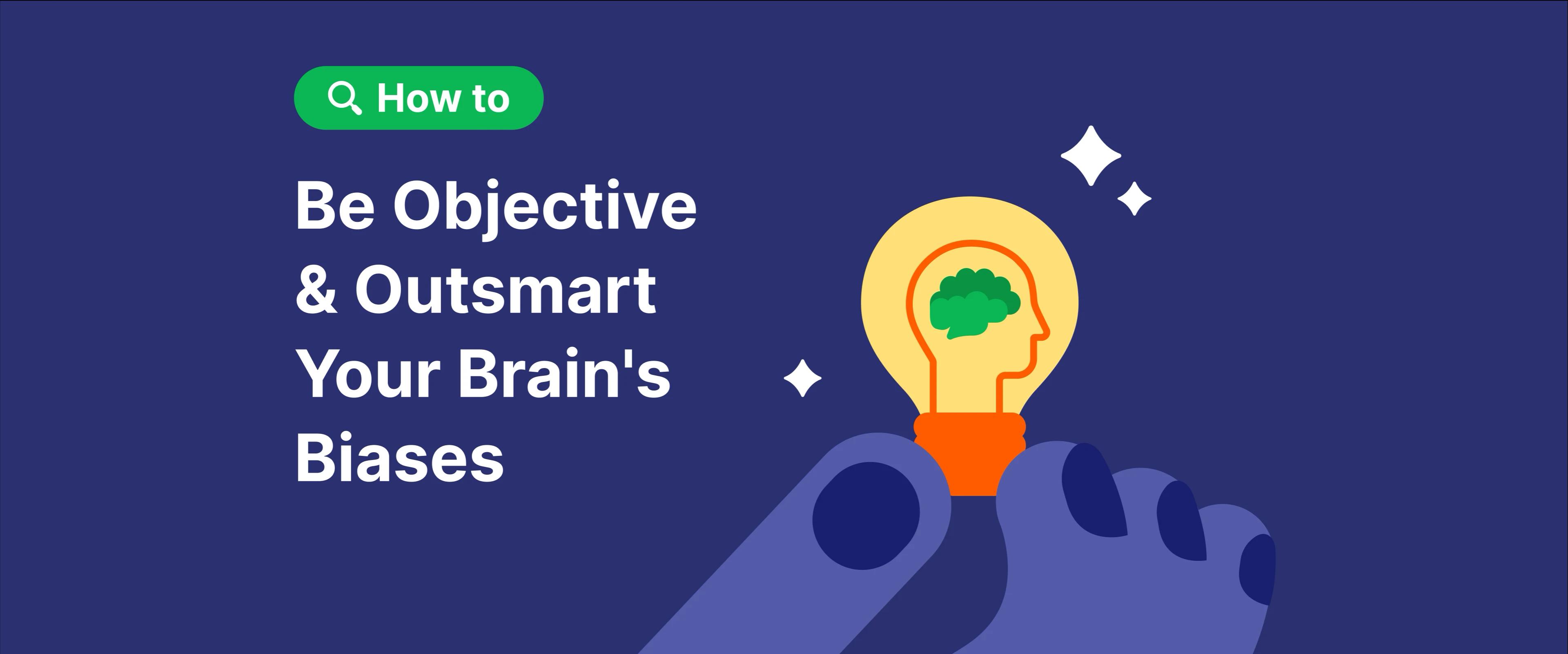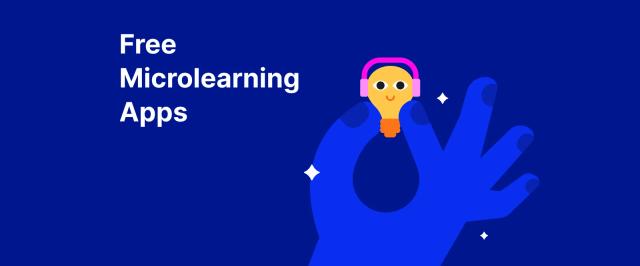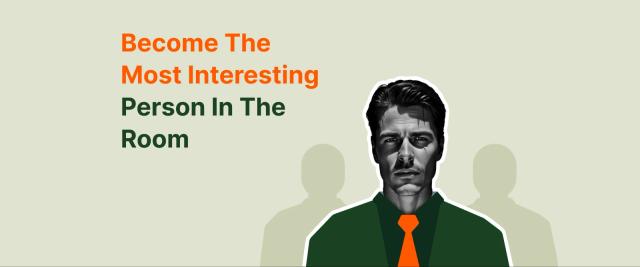Think about it:
Do I judge a person or a culture without knowing their context or experience?
When was the last time I admitted that I was wrong in my judgment of someone?
Do I automatically attribute traits to a person because of their background, profession, or age?
Do I feel uncomfortable when someone behaves "out of the ordinary"?
Do you really think you know yourself? Your thoughts, emotions, beliefs — who are they really? Even when you are honest with yourself, isn't there someone inside you lying?
True objectivity is an illusion because human beings always see the world through the lens of their past experiences and personal feelings. Your emotions strongly influence your decisions, affect your overall well-being, and shape your mental health, especially when you're striving to reach clear goals. In fact, challenging situations can provoke a whirlwind of emotions.
Sharpen your mind in just 15 minutes a day. Headway turns top psychology and self-growth books into actionable insights — download the Headway app now and start thinking smarter.
In this article, you will learn:
Which practical steps help to overcome biases
How to solve problems objectively without being overemotional
What prevents you from being objective
Confirmation biases
Emotions
Social pressure
How to think critically in decision-making
What is objectivity?
Objective means are based on facts, verified data, and scientific research. Personal feelings, preferences, and life experiences form subjective opinions. However, the truth is subject to verification and can be confirmed by experiments, research, or logical analysis. Conversely, subjective information is a personal point of view that cannot be verified or confirmed by scientific methods.
Being objective is vital in science, journalism, medicine, and law. For example, a doctor should diagnose based on facts, not personal beliefs. On the other hand, subjectivity is essential in art, communication, and personal relationships. It allows people to express their feelings, create unique artworks, and share their experiences.
However, all subjectivity can often interfere with making important decisions, adequately perceiving the situation, and being concerned with yourself and the world. And here, a look without emotions will come in handy.
How can you become a person without prejudice? You’ll find a few tips below. Additionally, there are many excellent books on objectivity; you can find their summaries in the Headway app. For example, 'Factfulness' by Hans Rosling, 'Willful Blindness' by Margaret Heffernan, and 'The Intelligence Trap' by David Robson
How to be more objective: Step-by-step methods
To avoid confusing personal opinion with facts, it is essential to develop critical thinking, analyze information, and be aware that not all statements are objective. This is especially important in social media, where manipulation and half-truths are often spread.
1. Step back emotionally
A purified, dispassionately objective view of the situation is necessary for successful business, and business practice has long developed numerous methods for this.
For example, in the British Army, filing a complaint on the day of the incident is prohibited. You can do this only the next morning, when emotions have subsided. Wise!
2. Recording your thoughts
Write down the conclusions you made in a stressful situation, and think about and write down what led to them. Ask yourself, "Why am I thinking this? Am I confident in my conclusions? What is the worst that can happen? Will I be able to cope?"
You will find that most of the answers are well-known to you. Writing down such thoughts dispels a bad mood, and what seems so scary and catastrophic in your mind does not look so terrifying on paper. Also, after writing down these negative thoughts, you can better understand how to act if there is an unpleasant situation that you can fix.
For instance, Abraham Lincoln was known for his objectivity, and he often wrote letters he never sent. Describing a situation on paper can provide unexpected insights into a problem.
📘 Master emotional objectivity under pressure — get Headway.
3. Recognize cognitive biases
"We do not learn from experience... we learn from reflecting on experience." ― John Doerr, 'Measure What Matters'
Your mind can convince you of anything. Some thoughts have no connection to reality, yet you often cling to them. Recognizing these thoughts is the first step toward gaining control over your thinking.
When you notice a negative thought, challenge it. Assess the situation more objectively: does your thought logically follow from the facts? Are there alternative perspectives to consider? How plausible are they?
It is impossible to get rid of cognitive shortcuts completely, but there is no need for this. You can simply minimize their possible negative impact. To do this, you must understand how it works and turn to logic, not emotions. Cognitive biases are thinking patterns, stereotypes, and certain automatic reactions to specific situations.
When you understand what is happening to you, it becomes easier to control. The better you control your state and perception of reality, the easier it is to live.
4. Diversify your input
To make rational decisions, you must learn to shift from a momentary assessment of the situation or person to observation. The results of your choices will always be the focus of attention. If you are focused on a negative result before making a better decision, it will be so to a greater extent.
For example, you meet a new colleague who seems cold and abrupt. You start to think that they are unpleasant and unapproachable. Later, you learn they are shy and stressed because of their new position. You change your approach — instead of distancing yourself, you show warmth, establishing good cooperation. If you remained a prisoner of your first reaction, you would have missed the opportunity for a good partnership.

5. Analyze information critically
Rather than accepting information "at face value," try to understand its source, purpose, possible impacts, and perspective. Question information, question its reliability, and objectivity. Look at issues from different perspectives to help you gain more information and broaden your horizons.
Evaluating information is vital because wrong information can lead to faulty conclusions, poor actions, and harmful results. People often share unverified details, twist facts, or spread lies, which can create confusion, conflict, and damage in society. Being able to assess information critically helps us understand the world and make better decisions.
6. Participate in debates and discussions
Actively participating in debates and discussions helps develop critical thinking skills, as you must analyze arguments and look for logical contradictions.
Discussions help you express your thoughts clearly while respecting the opinions of others. They also encourage teamwork to find solutions that work for everyone. Asking open-ended questions in a discussion can lead to discovering new ideas and solving problems. Engaging in discussions teaches you to consider different viewpoints beyond your perspective.
📘 Sharpen your critical thinking — get Headway.
Problem-solving strategies for better objectivity
"Factfulness is recognizing that a single perspective can limit your imagination." ― Hans Rosling, 'Factfulness'
A conflict with a partner, not receiving an invitation to a party, failing a critical exam, trying to get a loan, deciding between new jobs, and diseases. How do you deal with your emotions in these given situations?
A person who can think quickly has an advantage in any problematic situation. Using logic and focusing on objective facts, you can resolve the issue, absorb all the necessary information, and quickly find the right solution.
Most of us feel stressed at the very mention of a problem. We need to come up with an answer immediately, look for someone to blame, and want a quick and easy way out. When experiencing stress, we experience intense emotional tension.
However, we often make one critical mistake: we limit our options by trying proven solutions to problems instead of trying something new and more effective.
Problem-solving is a highly effective strategy for controlling emotions during stressful situations. It is a purposeful approach to dealing with stress, including attempts to change the situation or its consequences.
Solve your problem with this algorithm
Solving problems involves a particular algorithm of actions:
Defining the problem
Identifying obstacles to its solution
Thinking through potential ways to overcome the barriers
Evaluating potential solutions
Selecting the most effective option
Implementation
Evaluation of results
Ask yourself the five "whys"
Try this technique to get to the root of a problem quickly. All you have to do is ask "Why" five times. Start with the problem and ask why it happened, ensuring your answer is objective. Continue asking "Why" four more times. Eventually, you will find the right answer to your question and can start looking for a solution.
This technique's biggest challenge is answering each "why " rationally and objectively. Fight the urge to answer from your perspective. Instead, think about the logical reason why something happened. Remember that admitting you don't know something is much better than giving a subjective answer.

Real scenarios
"When we love someone, we see them as smarter, wittier, prettier, stronger than anyone else sees them." ― Margaret Heffernan, 'Willful Blindness'
What issues do we often lack objectivity on, and are we ready to prove our opinions to everyone around us? Let’s explore.
In personal relationships, confirmation bias can cause us to focus on a friend or partner's positive qualities, ignoring warning signs or behaviors that suggest otherwise. Idealization is natural in childhood and adolescence.
In adulthood, the tendency to idealize often fades, giving way to a more holistic and integrated attribution of others and ourselves. Unmet expectations are a key source of conflict in many couples. However, most people go through a phase in their relationships where they adjust their expectations of each other.
"Forming your worldview by relying on the media would be like forming your view about me by looking only at a picture of my foot." ― Hans Rosling, 'Factfulness'
You may not realize it, but you often select news sources and social media that align with your beliefs, creating a comfort zone. This is called confirmation bias. It leads to a feedback loop: the more you engage with similar viewpoints, the more convinced you become, making you less open to alternative perspectives. Ultimately, you end up with a filter around your thinking.
📘 Break free from confirmation bias — get Headway.
Why you struggle to stay objective in real life
When is it difficult to think objectively, and what influences your opinion? Your own prejudices or societal pressure can shape your worldview.
Confirmation biases
Understanding confirmation bias is important because it affects how you make decisions, solve problems, and interact with others. Confirmation bias happens when you pay attention to information that supports your beliefs and ignore information that goes against them.
This lets you filter out conflicting facts and alter memories to fit your biases. As a result, confirmation bias can create a skewed and polarized view of reality, making it harder to make objective decisions.
Emotions
Emotions can strongly influence your thinking processes and lead to cognitive distortions. Your judgment may become unclear when you feel strong emotions like anger, fear, or sadness. You might think in extremes, see only the worst possible outcomes, or overlook positive information.
The higher the emotion, the more irrational your decision is. Therefore, the main condition for making the right decisions at work and everyday life is a neutral emotional state.
Group thinking
Your social environment, including family, peers, the media, and society at large, can contribute to the development of cognitive distortions. Social norms, biases, and group thinking can influence how you perceive information, interpret events, and judge. If surrounded by individuals or groups with distorted thinking patterns, you may also learn and adopt these patterns.

How a biased point of view affects your objectivity
"Because it takes less brain power to believe than to doubt, we are, when tired or distracted, gullible." ― Margaret Heffernan, 'Willful Blindness'
Many cognitive biases can distort our perception of reality. These biases are always present and can hinder our ability to see things objectively. To combat this, we should practice intellectual discipline.
This discipline begins with curating our information diet—avoiding an overload of information and focusing only on what is necessary. It also involves thinking slowly and consistently to enhance our understanding.
Reduced openness to new information
When affected by confirmation bias, we become less open to new information or perspectives. Such reduced openness can hinder personal growth and learning, as we may avoid or reject experiences and knowledge that challenge our existing beliefs.
For instance, students who believe they are not good at a specific subject may disregard feedback and resources that could assist them in improving solely because they think their abilities are unchangeable.
Increase your level of objectivity with Headway book summaries
Being objective means thinking critically and making more informed decisions, not succumbing to emotions or social pressure. Sometimes, it might also mean bravery because you don't need to follow the crowd.
If you want to grow your knowledge of human nature or are interested in social psychology, download the Headway app.
You will find bestselling book summaries and a vast source of ideas for your growth and for broadening your horizons. Instead of scrolling through your social media feed, use your time for comfortable learning. You can read or listen to a book summary that interests you in just 15 minutes. What could be easier?
FAQ
Can humans be 100% objective?
No, a person cannot be completely objective, and there are both philosophical and psychological reasons for this.
How do I stop showing emotion?
In some cases, you can stop showing your emotions using the following techniques: Manage attention - concentrate on what is important, and ignore what is not important. Practice facial expressions and gestures, and use different voice tones. Manage breathing. If you breathe deeply and slowly, you will calm down.
Is being objective a good thing?
It is good to strive for objectivity, to be honest and impartial, but it is even better to combine it with empathy, critical thinking, and awareness of one's own biases.
What is an example of being objective?
Objectivity is essential in resolving workplace conflicts. By considering both sides' arguments, colleagues can find a compromise and maintain their relationships.
Is objectivity possible in journalism and media?
The media is a key source of information in a democratic society. However, it is impossible to describe the world without having some sort of viewpoint. Editorial policies and news selection criteria can also show bias. Nevertheless, the media should focus on reporting verified facts to ensure the information is reliable.










